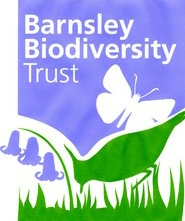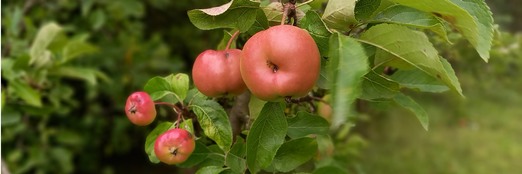

Biodiversity
Action
Plan
Traditional Orchard Conservation
Although there has been a loss and decline in condition of Traditional Orchards from the 1950s onwards some examples still exist in Barnsley and there is scope for their conservation and restoration. More recently there has also been interest in the creation of small scale community orchards and a rising demand for older, regional fruit varieties.
Causes of loss or decline of Traditional Orchard habitat
- Loss due to lack of demand for Traditional Orchards caused by cheap imported fruit and horticultural intensification elsewhere.
- Cessation of older non-intensive management practices and neglect leading to decline in Traditional Orchard habitat quality
- Lack of replacement fruit tree replanting.
- Encroachment, disease, pollution and development pressures.
See also guidance and requirements for Countryside Stewardship and
Environmental Land Management Schemes.
Links
PTES
Biodiversity, Traditional Orchard survey and inventory, Practical Guides. Orchard Network Other links
Natural England
Traditional Orchard Technical Notes
Site and tree selection, planting and establishing fruit trees, general pruning, formative pruning, maintenance pruning, restoration of neglected orchards, tree health, and wildlife.
Also available on agricology.co.uk
Gov.uk
Community Orchards How to guide
Good management practice
The key to positive conservation management of Traditional Orchards is to continue or reinstate low intensity management and undertake remedial action to counter any neglect.
- When planting a new orchard or “gapping up” an existing one:
- Plant a mixture of early, mid and late flowering/fruiting trees to lengthen the period for nectar, pollen and fruit; consider regional varieties, and space them out appropriately
- Use vigorous rootstock to extend tree life expectancy and keep old varieties by grafting with their scions (shoots or twigs).
- Maintain a full age range of orchard trees by protecting older trees, undertaking restorative pruning of older neglected trees, and planting new trees to replace them over time.
- Retain dead and decaying wood and other veteran tree features such as hollow trunks, cracks in bark and rot holes.
- Eliminate the use of fertilisers, herbicides and pesticides; use natural pest control.
- Carry out good grassland management including grazing and/or late mowing, maintaining grassland with diversity of flowering plants, and removing any grass cuttings from the orchard floor.
- Control scrub encroachment and avoid disturbing the soil structure.
- Undertake good management practice for other habitat types present in or abutting orchard as per pages in this BAP. Remember that some patches of longer grass, nettles, brambles and scrub benefit wildlife.


Traditional Orchard Conservation
Legal protection
National policies have a presumption against clearance of or development on priority habitats. Natural England provides Standing Advice on the protection of Veteran Trees
Work on trees with Tree Preservation Orders or within Conservation Areas are subject to consultation with local planning authorities.
Local Wildlife Site status is a material consideration in planning applications.
Work on orchards where protected species are present may commit offences under the Wildlife and Countryside Act, 1981. Protected species include all breeding birds and all species of bats. Licences may be needed from Natural England.